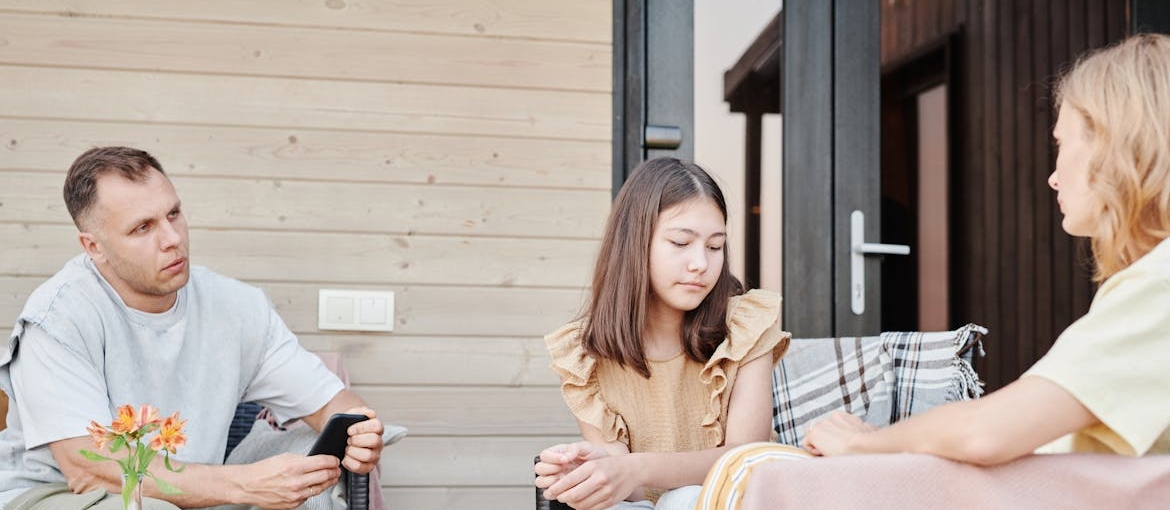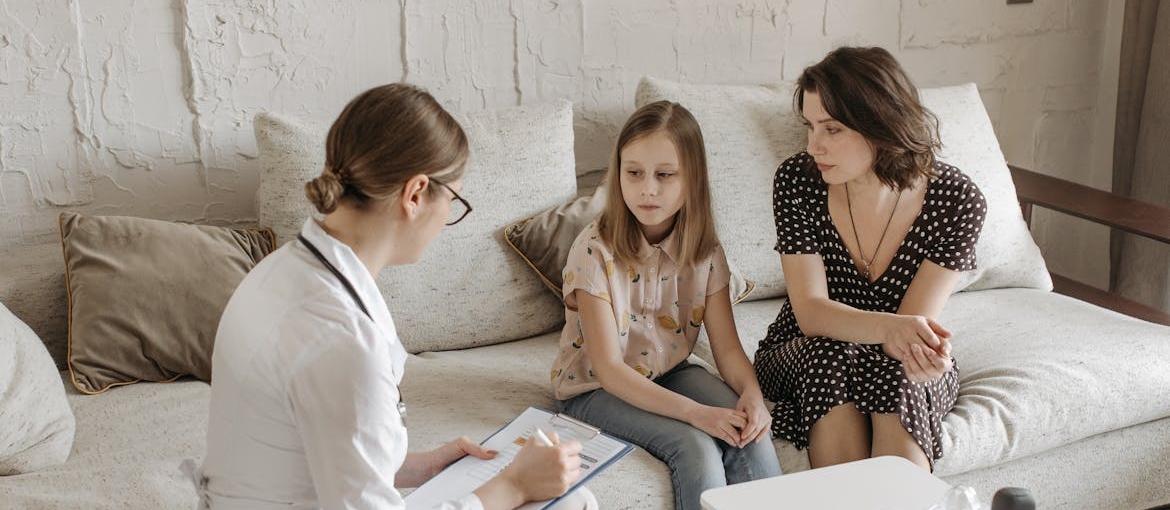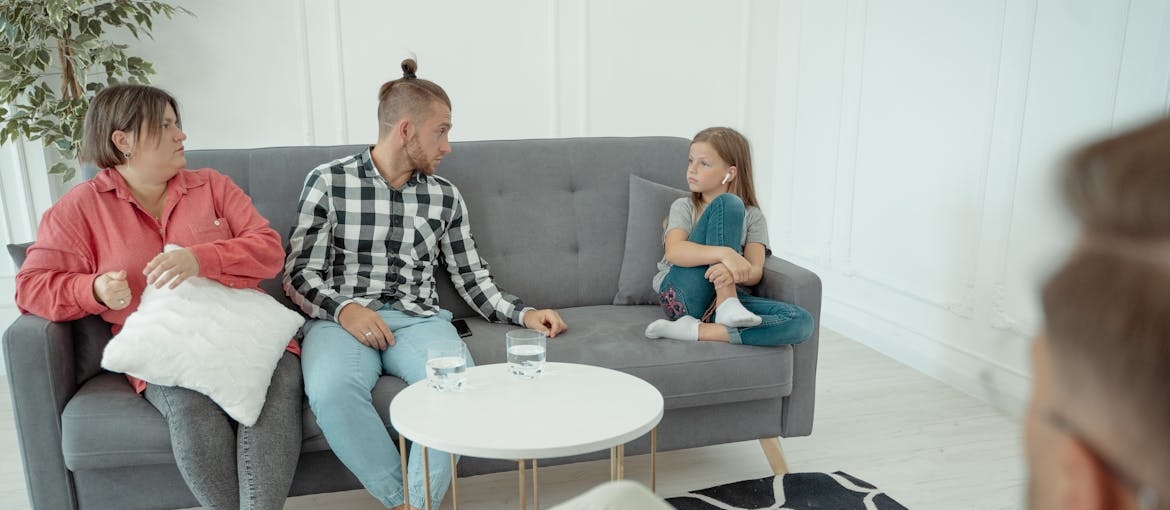Talking to your child about addiction is hard. Telling them a parent is going to rehab can feel even harder. You might worry about saying too much—or not enough. Still, kids sense when something is wrong. They need honest answers. They also need to feel safe and supported. If you’re facing this, you’re not alone. Many families go through the same thing. Knowing how to talk to children about a parent’s time in rehab can help protect their mental health. If you’re using a drug and alcohol rehab in West Virginia, or elsewhere, the advice here will still apply. These talks won’t be easy—but they can be healing.
Why Children Need Honest Conversations About Rehab
Kids are more aware than we think. They pick up on stress, silence, and changes in routine. If you avoid the truth, they may blame themselves or feel confused. When you talk to children about a parent’s time in rehab, you give them facts to replace fear. You also teach them that hard things can be talked about. Kids do better when they know what’s happening, even when it’s difficult.

That’s especially true when parental substance abuse affects children—which it always does. You don’t need to give every detail, but hiding everything can create more harm. Children deserve honesty at their level. Talking openly builds trust, reduces anxiety, and creates space for healing. These conversations help them feel less alone. They also show them that it’s okay to ask questions and express feelings.
Preparing Yourself Before Talking to Your Child
You need to feel steady before having this conversation. If you’re overwhelmed, your child will feel it too. Take time to check in with yourself. It’s okay to feel nervous or unsure. Just don’t let that stop you from talking. If your loved one is in an intensive outpatient program West Virginia offers, or elsewhere, the process may be new for you too. Before you talk to children about a parent’s time in rehab, use this list to help you prepare:
- Know your message: Write down what you want to say in simple words.
- Expect questions: Think about what your child might ask and how you’ll respond.
- Ask for support: Talk to a therapist or someone who has gone through this.
- Practice staying calm: Deep breaths can help you feel more grounded.
- Time it right: Choose a quiet moment with no distractions.
Tailoring the Conversation Based on Age
Each child reacts differently, depending on their age and what they already know. You may wonder, should I tell my child their parent is in rehab? The answer is yes—but how you say it matters. These tips show how to explain rehab to a child, while also supporting children during a parent’s rehab stay. Below are real strategies for helping children understand addiction recovery, no matter their age.

Explaining Rehab to Toddlers and Preschoolers
Children this young don’t need deep details. But they notice when a parent disappears or routines change. Say simple things they can follow. Use clear, short phrases. You can say, “Mom is at a place where people go to get better.” Avoid words like “sick” or “bad,” which could scare them or make them think it’s their fault. Give reassurance every day. Let them know they are loved and safe.
You might be using alcohol rehab WV program or another treatment program. It’s okay to say their parent is getting help to feel better. Read books about feelings. Keep routines steady. If they act out, it’s normal. They’re adjusting. Be patient and calm. Talk to children about a parent’s time in rehab in ways that match their world. These talks plant seeds for trust and safety.
What to Say to Elementary School Kids
This age group asks more questions. They also worry easily. Start with the truth, but don’t overload them. Use calm language and keep your tone steady. Say something like, “Dad is getting help for a problem. He’s in a place that helps people make healthier choices.” Explain that addiction treatment helps people feel better and act better.
Answer questions as they come. Don’t fake details or dodge topics. This is a time to support children during a parent’s rehab stay with honest words and steady support. You can say things like, “He’ll be there for a while, but you can still send drawings or letters.” Remind them their parent still loves them. This is how you talk to children about a parent’s time in rehab without scaring them.
Talking to Teens About Addiction and Recovery
Teens want facts. They usually know more than you think. Hiding the truth can backfire. This is where you can really explain how to talk to children about a parent’s addiction treatment. Be clear and respectful. Start with, “Your parent has a substance use problem. They’re in rehab to learn how to live without drugs or alcohol.”
Be ready for anger, sadness, or silence. Say that it’s okay to feel anything. They need space to talk, but they also need support. Give them options—therapy, a trusted adult to speak with, or support groups for teens. Let them know rehab isn’t the end of the story—it’s a step forward. Use this time to build trust. Teens can handle more than we think when we treat them with care. It’s one more way to help them grow.

How to Talk to Children About a Parent’s Time in Rehab
Start where your child is, not where you think they should be. Speak simply. Be honest without being scary. Kids deserve truth, but in words they understand. You don’t need to talk about every detail of treatment. Just let them know their parent is getting help and isn’t gone forever. It’s also important to tell them addiction is not a matter of choice. That helps remove shame and blame. If you’re not sure how to help a child when a parent goes to rehab, begin with open, calm conversations. Use this list to guide your talk:
- Speak at their level: Use words they already know and understand.
- Be truthful: Don’t lie or make up stories—they’ll know something’s off.
- Reassure them: Let them know they’re loved and not to blame.
- Keep it short: Let the child lead the pace with their questions.
- Repeat as needed: They might need to hear it more than once.
Long-Term Strategies for Healing as a Family
Once the talk is over, your support should continue. Kids may still have questions weeks later. Healing is a process, not a one-time event. You’ve taken the first step to talk to children about a parent’s time in rehab, but they’ll need help as life shifts. The three tools below will help you build a strong foundation after treatment.
Using Family Therapy to Rebuild Relationships
Family bonds often suffer during addiction. Therapy helps rebuild trust and creates space for honest talks. You don’t need to wait until things feel better—start now. Find a program that offers family therapy for addiction. These sessions give everyone space to speak, listen, and repair hurt. Kids can ask hard questions in a safe space. They can also hear that they’re not alone.

Family therapy isn’t just about the parent in rehab. It’s about everyone in the home. It shows your child that their voice matters too. These sessions also model how to solve problems without yelling, blaming, or shutting down. If you’ve already talked to children about a parent’s time in rehab, therapy gives you a place to keep that conversation going. Healing takes effort, but families can grow stronger after rehab with help.
Teaching Healthy Coping Skills for the Future
Even after rehab, life still brings stress. Kids need ways to deal with it that don’t involve anger, silence, or blame. That’s where coping skills come in. Teach them to talk about feelings, draw, journal, or go outside when things get hard.
If you educate kids on the dangers of alcohol, they’re more likely to make safe choices later. Be honest about your family’s struggles, but also about progress. Say, “This has been hard, but we’re getting better together.” Help them name feelings like anger, fear, or sadness. Show them how to calm down when upset. These small lessons add up.
Staying Involved in the Recovery Process as a Family
Don’t stop talking just because rehab ends. Kids often feel confused when a parent comes home. It helps to prepare for a loved one’s return after rehab ahead of time. Talk about what might change—rules, routines, visits, or new habits. Keep them in the loop. Ask how they feel and listen without interrupting.
Staying involved means staying open. Share updates, even simple ones like, “Mom had a good day in group today.” It shows recovery is real. Invite your child to write notes, draw, or join a family session. You already talked to children about a parent’s time in rehab—keep that thread going.

Common Reactions and How to Handle Them
Kids react in all kinds of ways. Some cry. Others stay quiet or act out. There’s no single “right” response. What matters is that you notice and support them. When you talk to children about a parent’s time in rehab, pay close attention to how they respond. Emotions might come out later, not right away. Stay calm, stay close, and keep the door open for follow-up talks. Here are common reactions and how you can handle them:
- Anger: Let them express it without judgment—anger is a normal part of grief.
- Silence: Give them time. Some kids take longer to open up.
- Guilt: Make it clear this isn’t their fault. Say it more than once.
- Anxiety: Keep routines as steady as possible to help them feel safe.
- Repeated questions: Be patient—kids ask again when they need comfort.
Supporting Children While a Parent Is in Treatment
Your child’s world just changed. Even if the parent was struggling before, this new chapter brings questions and fear. During this time, you are their anchor. Keep routines going, even if they’re simple. Dinner, bedtime, or walks—all of it helps. Find ways to include the other parent, like sending drawings or voice messages. It makes rehab feel less distant.
When you talk to children about a parent’s time in rehab, bring up ways they can stay connected. Small gestures help them cope. Let teachers or caregivers know what’s happening so your child gets extra support at school. This is where the impact of substance use disorder on families becomes clear—children feel the weight too. Check in with your child often. Ask how they feel, and really listen. You don’t need to fix everything. Just be there. These moments show them that life continues and that they’re not facing this alone.

What to Say When the Parent Returns From Rehab
Coming home is a big step, but it doesn’t mean everything is perfect. Your child may have hope, worry, or mixed feelings. Keep talking. Let them know what changes to expect, like new routines, therapy sessions, or family meetings. Remind them that healing takes time and that it’s okay to talk about it. You already talked to children about a parent’s time in rehab—now it’s time to keep that trust going. Use this list to support that next step:
- Say what’s new: Share upcoming changes in a calm, simple way.
- Check in often: Ask how your child is feeling after the return.
- Give space: Don’t force big talks. Let emotions come naturally.
- Encourage connection: Help them rebuild their bond with the parent slowly.
- Stay honest: Talk about progress, but also about the work still ahead.
Talking to Kids About Rehab: What Comes Next
You don’t have to get every word right. You just have to show up and be honest. Kids don’t need every detail—they need comfort, consistency, and care. If you’re ready to talk to children about a parent’s time in rehab, start small. You’re doing something good by facing this instead of hiding it. And if you need help, don’t hesitate to reach out to a therapist or support group. You’re not in this alone, and neither is your child. Honest talks now can make a real difference later.
Frequently Asked Questions
Why do people feel sober and bored after quitting alcohol or drugs?
Many social routines and sources of excitement were tied to substance use. Once those are removed, it takes time to rebuild enjoyment in healthier ways.
Can boredom really lead to relapse in recovery?
Yes. Boredom is one of the most common relapse triggers because it can increase isolation, low mood, cravings, and thoughts of returning to substance use.
What helps reduce boredom in long-term recovery?
Staying active, developing hobbies, managing stress, and maintaining social connections help create a meaningful routine and lower the risk of relapse.



